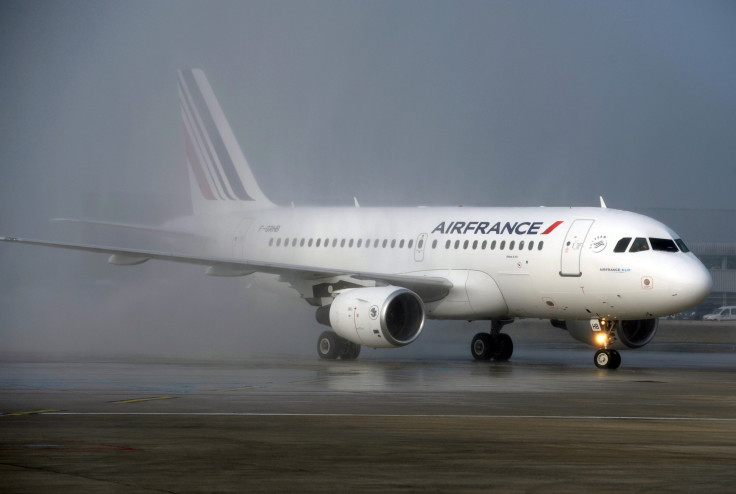Air France Pilots Begin 4-Day Strike, Threatening Travel Plans Of Thousands Of Euro 2016 Fans

Air France pilots began a four-day strike Saturday even as the country hosts the Euro 2016 competition — Europe’s biggest international soccer tournament. The strike, in which over a quarter of the airlines’ pilots are participating, has reportedly forced Air France to cancel up to 30 percent of its flights Saturday.
“On Saturday 11 June 2016, Air France expects to operate more than 90 percent of its long-haul flights, 90 percent of its domestic and around 75 percent of its medium-haul flights to and from Paris-CDG [Charles de Gaulle Airport], considering that 25 percent of pilots are expected to take strike action on Saturday,” Air France said in a statement released Friday. “However, there may be last-minute cancellations and delays.”
The pilots are protesting Air France’s decision to impose more work hours without additional pay. However, it is part of a much broader discontent among French workers regarding a controversial labor reform bill that will be tabled at the Senate later this month.
A key area of disagreement over the so-called “bosses’ law” relates to a provision that gives more flexibility to companies in deviating from France’s 35-hour workweek. Protesters have demanded that the country’s Socialist government withdraw the bill, which has already been passed by the Parliament’s lower house without a vote.
The pilots’ and other French workers’ strike comes at a time when over 1.5 million people are expected to visit the country to watch the Euro 2016 matches. As a result, many, including French President François Hollande, have expressed concerns over how it would impact the major sporting event.
“I appeal to everyone's sense of responsibility because if the state must do its duty - and it will, it will take all the measures that are necessary,” Hollande, who argues that the bill aims to reduce unemployment — currently at 10.5 percent — and make the country more business-friendly, said Friday. “At the same time, it is also necessary that those who are taking part in actions, or who are organizing them should also shoulder their responsibility... so that this great event can be a shared popular festival.”
However, the powerful CGT trade union, which is spearheading the strikes, has refused to back down.
“We did not decide that the Euro will take place on this date. There is a social movement going on now, the re-organization [of labor] continues, the labor law continues,” Berenger Cernon, secretary general of the CGT union, said. “We want the negotiations on the collective agreements to be open for everybody. So yes, clearly this will disturb the Euro and we will continue the strike.”
© Copyright IBTimes 2025. All rights reserved.





















